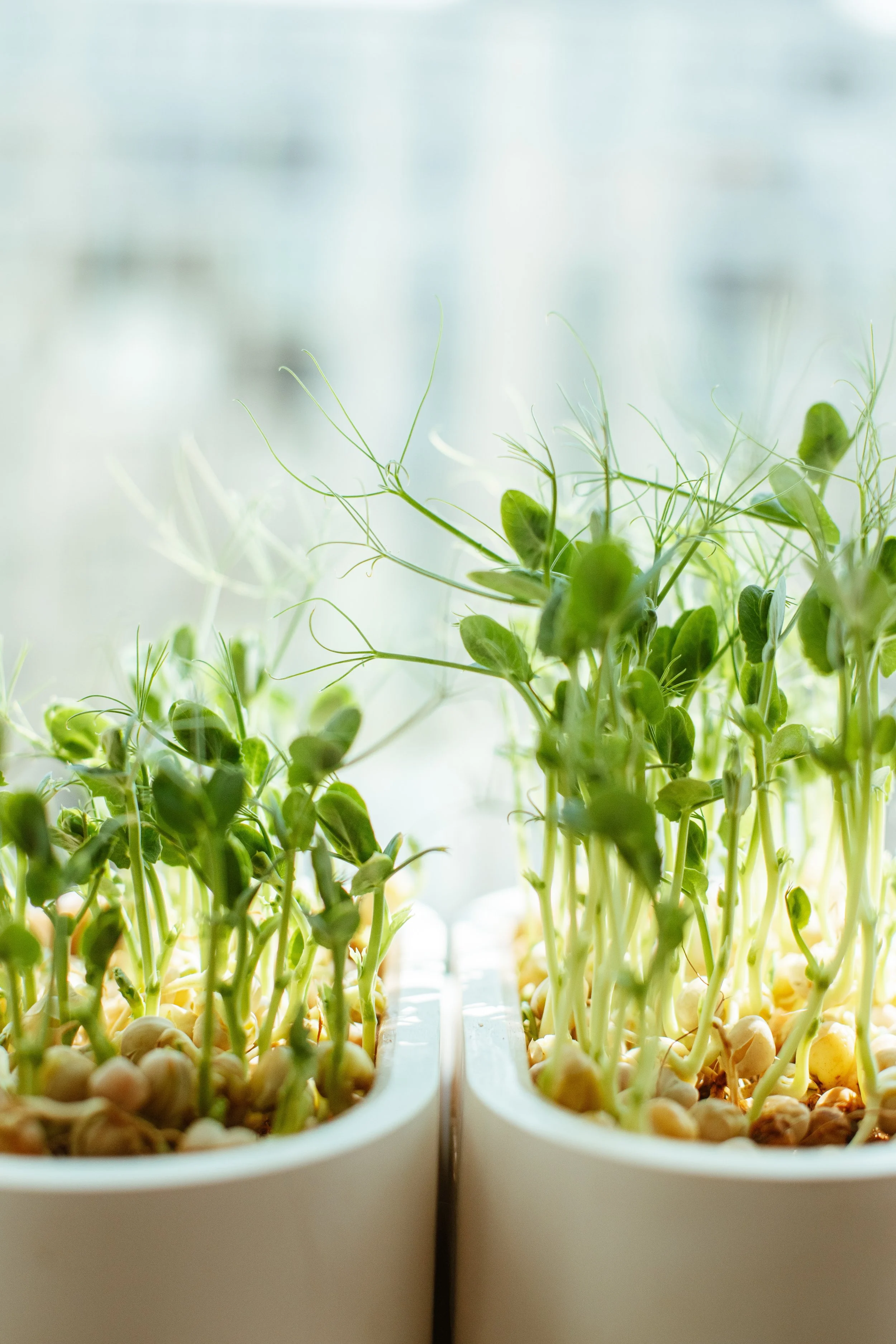Plant Protein vs Animal Protein
You may be surprised…
Let’s discover the nutritional dynamo of plant protein. Sunflower sprouts, for example, offer a remarkable 24g of protein per cup. Contrary to common belief, plants provide complete proteins and all essential amino acids that are crucial for optimal health. Let's explore the power of plant nutrition compared to animal-based nutrition, and debunk the myth that meat is the sole source of protein. For those wondering, eating a colorful, diverse, vibrant, and fresh raw vegan diet can not only heal various illnesses, but it can optimize your physical performance, alter your mind and body, and contribute to environmental preservation.
Think that the vegan diet is a new fad? Think again! Research shows that the raw vegan diet dates back to the Pythagorean era of the ancient world. (1)
Science has proven that food loses nutritional value when it’s heated above 118ºF (2) and retains its healing and beneficial nature when you do not cook or denature it with heat. (3)
“One cup of sunflower sprouts boasts an impressive protein and amino acid content that provides a substantial dietary source for those seeking an alternative to meat or for those seeking to add dense protein and nutrition to their current intake."
Have a look at the basic nutritional differences between one cup of sunflower sprouts and one cup of cooked chicken:
One cup of sunflower sprouts contains:
Saturated Fat: 8g
Protein: 24g
Fiber: 8g
Carbs: 24g
Iron: 4.16mg (32% of the daily recommendation)
Calcium: 2% of the daily recommended value
Vitamins: 40% of recommended daily value
Energy (kcal): 190 calories
One cup of chicken contains:
Saturated Fat: 9g
Protein: 40.5g
Fiber: 0g
Carbs: 0g
Iron: 1.69 mg (13% of the daily)
Calcium: 2.1% of the daily recommended value
Vitamins: unknown (depends on many factors but approximately less than 4%)
Energy (kcal): 266 calories
*How many grams of protein does the average person need daily? We need .36 grams per pound of body weight daily.
Choosing plant-based protein has additional benefits beyond nutritional needs. Digesting plants is easier on the body than meat for the following reasons:
plant digestion requires less of your body's energy
meat digestion creates an acidic environment in the body, potentially leading to issues like acid reflux and cancer. Plant-based diets are rich in alkaline-forming foods and help maintain a more balanced pH level
a plant-based diet reduces systemic inflammation
it's easier for the body to digest, assimilate, and eliminate. Read more about that process HERE.
most meats contain additives and preservatives that can be harder for the body to process
easier blood sugar regulation
plants contain natural enzymes and phytonutrients that can assist the digestive process
animal products add unnecessary and harmful animal hormones into your body, making it harder for you to balance your own hormones
provides quicker healing
“Digesting plants contrasts the heavier load often associated with meat consumption.”
Plants (vegetables and fruit) are digested and moved through the digestive system within twelve hours. Meats take up to three days and often sit in your gut rotting - this causes harmful/bad bacteria to grow, disrupting your gut microbiome, slowing down digestion, creating inflammation, and, from there, a cascading effect of unpleasant symptoms. Embracing plant-centric diets has been linked to enhanced brain power, thanks to plant-based foods' rich array of vitamins, minerals, and antioxidants.
The growing body of research supporting the efficacy of plant-based diets has debunked the myth that meat is the sole provider of essential amino acids and proteins. By making sunflower sprouts and other plant-based proteins our meal base, we
diversify our nutrient intake and contribute to a sustainable and compassionate approach to nutrition. Ultimately, the power of plant nutrition shines as a pathway to holistic well-being, proving that meat is not a prerequisite for achieving optimal protein intake and overall health.
It's important to note that individual responses to different foods can vary, and some people may find certain plant-based foods challenging to digest. Additionally, food preparation methods, individual health conditions, and overall dietary habits significantly influence how well the body digests plant- and animal-based foods.
Please email me and let me know how you meet your daily protein goal. I'm always curious to learn more.
If you want to learn about Intermittent Fasting, read this article.
If you're eager to see an optimal daily eating schedule (when to eat vs when to fast) and how I eat daily, read this article.
If you’d like to learn how to build the healthiest, most nutrient-dense salad, read this article.
Be well,






Dry Brushing: tips, how-to, benefits, and the top brush set I use and recommend.